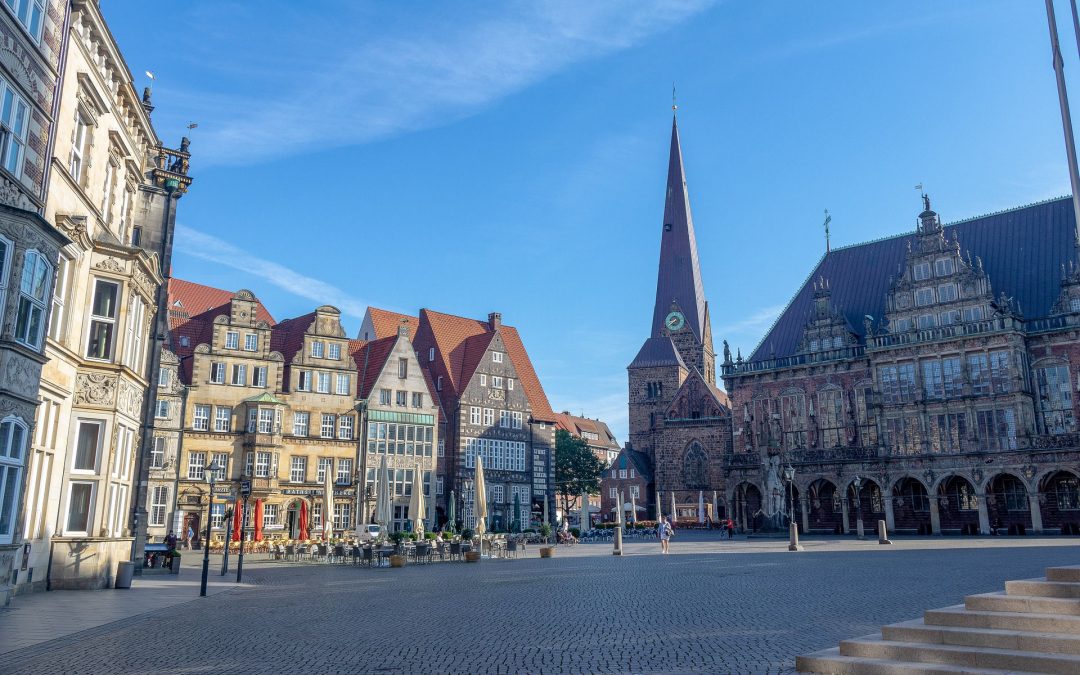The Russia’s “archival revolution” of 1990s transformed fundamentally the perception of the Soviet Union’s last decade. However, the problem of accessibility of new, previously unstudied sources is still debatable due to many governmental and non-governmental issues. The sources of unofficial, underground social strata in this case are especially problematic because many of them are located in private collections. One of the difficulties that I personally faced with during my archival work in Russia, particularly in St. Petersburg, was the lack of sources on the object of my research (I am focusing on the group’s of “rescue of Leningrad’s monuments” – GR – activity during the perestroika period). That is why the perfect possibility to work with this type of sources in the archive of the Research Centre for East European Studies (Forschungsstelle Osteuropa – FSO) at the University of Bremen in April 2018 was a great chance not only to improve my own study, but also to contribute my efforts for the archive’s development.
The archive itself contains huge number of documents, images, maps, newspapers, Samizdat’s collections, books on the informal culture of Eastern Europe in a large scale. The goal of my work was the inventory of the documents represented the Leningrad’s Samizdat tradition from 1960s to 1990s. Under the guidance of Maria Klassen, I codified the Fund number 5 with Obvodnyi Canal, 37, Mitin Zhurnal Samizdat journals, creating digital version of their contents for further improvement of the archive’s online catalogue. Particular attention was directed to the names of actors, titles of their poetry and literary works as well as publication on the urgent Soviet social and political issues. This type of work was extremely useful for me to delve myself deeper in the context of the Leningrad underground life before and during Gorbachev era.
Actually, equal time was devoted for my personal research agenda. In fact, during thirty days of archival research in Bremen I found many documents important for my study that I have even not imagined to find in St. Petersburg archives. It includes the whole numbers of GR’s Samizdat journal Vestnik Soveta po Ekologii Kultury, some publications of GR’s actors, unofficial correspondence between GR’s member Vasilii Lurie and one of the Mitin Zhurnal’s founders Dmitrii Volchek and other documents correlated with my actual topic. The analysis of these documents as well as references to the FSO’s archive will definitely be a considerable part of my potential Thesis. No doubt, the archival work in FSO was valuable for me from the all intellectual, practical as well as social sides.
No less important was the personal connections and help from the FSO’s staff members and affiliated researchers from the University of Bremen. My most sincere gratitude goes to Nikolai Mitrokhin, Maria Klassen, Urlike Huhn, and prof. Susanne Schattenberg without whom this intellectual trip could not have happened at all. Their contribution for my enjoyable staying in Bremen in general and for my productive and very helpful archival work in particular is indeed immeasurable. Also, I would like to thank all people and institutions that made my work in Bremen feasible.
Last but not least I should probably underline that during my staying in Bremen I was inspired by the atmosphere of student life in this comfortable city. Generally, the university itself has all necessary infrastructure both for students who study at the University of Bremen and for international guests and interns. I was living in the Neustadt district and for me it was easy to get the university by the direct tram’s line. The same inspirational feelings were in the library that contains many books and materials necessary for study and research even for my sphere of interests. The fact that my stay was during the spring season impacted well on me and now I am full of optimism and motivation to continue my research and work on Thesis.
To sum, once again I would like to thank all the people involved in organizing my intellectual trip, it was very productive and helpful both for me and for the archive of the Research Centre for East European Studies. I believe that the received experience, personal contacts, as well as the need for further work with such type of sources will help me to continue cooperation with FSO and return to the archive in the following years.


Neueste Kommentare